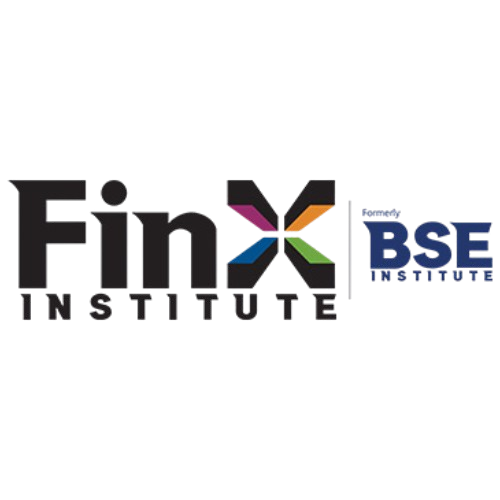In today’s fast-paced financial world, capital markets play a crucial role in driving economic growth. For students aspiring to build a successful career in finance, banking, or stock trading, a BMS course in Capital Markets is an excellent choice. But is BMS a good course for a rewarding career? Let’s explore the benefits, scope, and opportunities that come with pursuing this specialized program.
What is a BMS Course in Commerce?
A Bachelor of Management Studies (BMS) course in Commerce is an undergraduate program designed to provide students with in-depth knowledge of business, finance, and management. When specialized in Capital Markets, the program focuses on investment banking, stock market operations, financial planning, and risk management.
The BMS course scope extends beyond traditional business studies, equipping students with analytical and decision-making skills needed to thrive in the dynamic world of finance. The curriculum includes subjects like Economics, Business Statistics, Financial Markets, Investment Strategies, and Portfolio Management.
Why Choose a BMS Course in Capital Markets?
Growing Demand for Capital Market Professionals: The financial sector is evolving rapidly, with increasing investments in stock markets, mutual funds, and fintech innovations. A BMS course in Capital Markets prepares students to navigate this landscape effectively and take advantage of emerging career opportunities.
Industry-Relevant Curriculum: Unlike general management courses, a BMS in Capital Markets is designed with a focus on financial instruments, stock exchanges, trading strategies, and risk assessment. This makes graduates industry-ready from day one.
Practical Exposure and Hands-on Learning: Many universities offering a BMS course in Commerce provide practical training through internships, stock market simulations, and case studies. This exposure helps students understand real-world financial market trends and enhances their employability.
High Salary Potential and Career Growth: One of the biggest advantages of pursuing a BMS in Capital Markets is the high salary potential. Graduates can start as financial analysts, investment bankers, or stock market traders and grow into well-paying leadership roles over time.
Diverse Career Opportunities: The BMS course scope is vast, allowing graduates to explore various fields such as stockbroking, financial planning, corporate finance, risk management, and fintech startups. The skills acquired are transferable across industries, providing a broad range of career options.
Benefits of Pursuing a BMS in Capital Markets
Comprehensive Knowledge of Financial Markets: Students gain a deep understanding of stock markets, derivatives, bonds, and investment vehicles, making them valuable assets to financial institutions.
Entrepreneurial Opportunities: With a strong foundation in capital markets, graduates can start their own investment firms, trading businesses, or financial consultancy services.
Networking and Industry Exposure: The course often includes guest lectures from industry experts, networking events, and internships with top financial companies, providing students with invaluable insights and connections.
Job-Oriented Learning Approach: Unlike traditional degrees, a BMS course in Commerce is structured to meet industry demands, ensuring students acquire skills that employers seek.
Global Recognition and Career Mobility: Capital market expertise is highly valued across the globe. With a BMS degree, graduates can explore international job opportunities in banking, trading, and investment firms.
BMS Course Scope: Career Opportunities
Graduates of a BMS in Capital Markets have access to a wide range of job roles, including:
Stockbroker: Advising clients on investments and trading stocks on their behalf.
Investment Banker: Managing corporate finance activities, mergers, and acquisitions.
Financial Analyst: Analyzing market trends to assist companies in financial decision-making.
Portfolio Manager: Managing investment portfolios to maximize returns for clients.
Risk Manager: Identifying and mitigating financial risks for organizations.
Fintech Specialist: Working in technology-driven financial services such as blockchain and algorithmic trading.
With these career options, the BMS course scope extends into various domains, providing a solid platform for long-term professional success.
Further Studies & Certifications After BMS in Capital Markets
To enhance career prospects, graduates can pursue advanced certifications such as:
Chartered Financial Analyst (CFA)
Financial Risk Manager (FRM)
Certified Investment Banking Professional (CIBP)
Future of Capital Markets & How BMS Prepares You
The future of capital markets is being shaped by technological advancements like AI-driven trading, blockchain, and digital currencies. A BMS course in Capital Markets prepares students for this transformation by integrating modern financial technologies into its curriculum.
Moreover, the global demand for financial professionals continues to rise, making this course a lucrative choice for students who want to stay ahead in the finance industry.
A BMS course in Capital Markets is an excellent choice for students who want a rewarding career in finance, stock markets, and investment banking. The BMS course scope is vast, offering multiple career opportunities with high salary potential and global recognition. If you are passionate about finance and looking for a career with immense growth potential, this course is the right path for you.
Whether you aspire to be a stock trader, investment banker, or financial analyst, a BMS degree in Capital Markets will provide you with the skills and knowledge to excel. Explore top universities offering this course and take the first step toward a successful finance career today!
